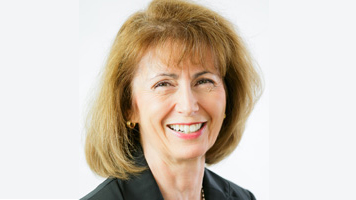Collins | Risk Taking As A Business Strategy

“Life is either a daring adventure or nothing.” — Helen Keller
What an exciting way to look at the world, although admittedly uncomfortable for many people. It turns out that certain risk-taking can be beneficial to both individuals and their organization.
Now, I’m not talking about taking risks with financial reporting such as overstating revenues or fudging expenses. Instead, consider that people who see themselves as deliberate, cautious, responsible, and thoughtful, can also be considered reserved, lacking courage, and less than inspirational. These are not traits that fuel successful organizations.
Josef Martens is a regular contributor to the “Human Factor” column in MFM’s member magazine, The Financial Manager (TFM). He works with organizations to help them improve their performance. In the column he prepared for the September/October issue of TFM, he explains why the ability to take risks, a skill he believes can be practiced and mastered, can lead to improved outcomes.
Martins’ examples of challenges that require a risk-taking mindset are based on responding to external customers. I would argue that leaders face similar challenges responding to internal customers and employees. These include improving relationships, responding to needs, and “nurturing an agile culture that allows for adoption to change.”
Relationships, whether internal or external, are based on trust. Martens suggests that building trust begins with being willing to take a risk in the relationship. That risk, he says, could be as simple as giving a real answer to a question like, “How was your weekend?”
His second example involves seeing someone who seems distracted when that someone is normally composed. Instead of ignoring the situation, one might say, “You don’t quite seem your normal self.” Such actions, he says, open the door to real conversations and in most cases, the person reciprocates by trusting more.
To build an agile culture, managers (and their companies) must be willing to “let go of our preferred way of doing things.” Martens says trying new approaches and taking action before knowing what comes next “is the very definition of taking a risk.”
In Martens’ view, innovation, which leads to differentiation, is a business imperative. He explains that customers tend to choose a business partner because of a prior relationship. I would add that those prior experiences contribute to a company’s reputation. That reputation also plays a role in attracting those customers and that it is certainly important for attracting and retaining employees.
But, reputation only goes so far. Maintaining those relationships will depend upon the clients’ or employees’ experience. Martens contends that the best client (or employee) experience is distinctive. He says companies can create that experience by being intentionally different, in a positive way, from all other competitors. This means taking some risks. Unfortunately, it turns out that most people overestimate their risk-taking abilities.
So, how can one measure their skill in this area? Martens suggests deploying a “courage scale” of 1-10 with one being “very low.” Use this scale to rank performance in situations such as showing courage at a networking event, addressing uncomfortable issues during a team meeting, or trying a new approach during a presentation.
The good news is that one needn’t always score a 10. However, scores in the 1-2 range indicate a need to “step it up by a couple of levels.”
Risk-taking, like other skills, requires practice. It’s not something that can be activated at will. In fact, Martens asserts, without practice, potential risk-taking is met with an inner voice that says “emphatically, ‘Don’t do it.’”
The trick is to “tame that voice.” Quoting ancient Greek philosopher Aristotle, he says, “[Bravery] then, is not an act but a habit…. We become brave by taking brave acts.”
The good news, he says, is that one can practice this behavior in a variety of different situations, and in the process begin to squelch that inner voice and reflexive concerns. He suggests several “simple and impactful ways to get in the right mindset:
- State your opinion unfiltered.
- Speak up when, and as soon as, you see something wrong.
- Ask for something you don’t expect to get.
- Write down your biggest goal in life and take one action towards it. (You’ll earn bonus points if you share your goal with someone).
- Negotiate something.
- Tell someone what you appreciate about them.
Martens concludes his column by observing that practice builds confidence, that the more one practices, the easier such risk-taking will become. It’s what Helen Keller described as the ability to face change. The best part? Being able to approach the uncertain with comfort is an important characteristic for leaders.
The September/October 2019 issue of TFM, which includes Martens’ column, will still be available on the MFM website — www.mediafinance.org — for the next few weeks.
MFM’s vision is to make media finance professionals more knowledgeable and valuable today while developing the next generation of global media leaders. In addition to providing information though publications such as TVNewsCheck, we offer members (and others) a variety of training and development sessions.
Upcoming events include:
- A Distance Learning webinar to explain the new federal overtime rules (effective Jan. 1, 2020) — on 29.
- A Media Credit & Collections Workshop — mid-day Wednesday through mid-day Thursday, 23-24, in Washington.
- A Roundtable for Games Finance Professionals, Friday, 1, in Redwood City, Calif.
- A Media Tax Summit, Thursday, 12, in New Orleans.
Details and registration information for these and other programs are available on the MFM website.
Mary M. Collins is president and CEO of the Media Financial Management Association and its BCCA subsidiary, the media industry’s credit association. She can be reached at [email protected] and via the association’s LinkedIn, Twitter or Facebook sites.
































Comments (1)
veteranmanager says:
October 18, 2019 at 9:47 am
I agree with you, however, ask any Sinclair manager about risk taking and they might tell you they have no discretion to take risk.